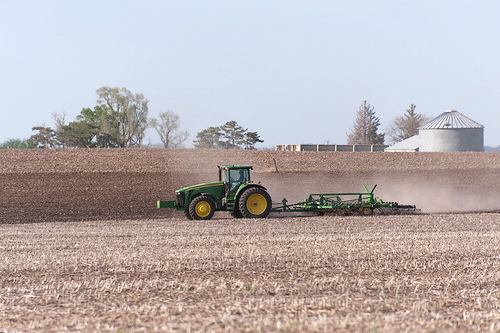- La Feria Community Holds Succesful Business Mixer Event
- Little Nashville to Take Place in Downtown Mercedes
- Lions Basketball Captures District Gold
- La Feria ISD Students Compete in Regional Chess Tournament
- Lions End First Half of 32-4A on a High Note
- La Feria ISD Held Another Successful Parent Conference
- Strong Appearance for Lions at Hidalgo Power Meet
- LFECHS Students Get to Meet Local Actress
- Students Participate in Marine Biology Camp
- Two LFECHS Students Qualify for All-State Band
Farm Bill (Finally) Advances, Some Reforms Left Behind
- Updated: February 7, 2014
Payment Limits Provision Passed Both Chambers, But Tossed by Committee
by John Michaelson/TNS
AUSTIN, Texas – After more than two years of debate, it appears a new Farm Bill is headed for passage – although there are misgivings on a number of fronts.
The legislation that emerged from the Conference Committee does not include proposed reforms on payment limits. They were in both the House and Senate versions, but were tossed out during negotiations, much to the ire of amendment author Sen. Chuck Grassley, R-Iowa.

An amendment to limit certain farm payments is not in the new five-year Farm Bill that’s expected to be voted on today in the U-S House. Photo: Carl Wycoff/TNS
“So how does it happen? It happens just because of, I suppose, the lack of understanding of most people … that 10 percent of the biggest farmers get 80 percent of the benefits out of the program,” Grassley said. “Now, they’re going to tell you they keep payment limits in, but the limits are higher than they were under present law.”
The legislation proposes billions in cuts elsewhere, including some conservation programs and $8 billion in food stamps over 10 years. Critics say, however, that without the reforms that cap farm payments, the nation’s largest farms still will have access to virtually unlimited farm subsidies.
In the Midwest, Grassley said, it’ll be “about status quo” going forward under the new legislation, which he also believes is tipped heavily in favor of southern agriculture.
“Cotton, peanuts and rice. With the base acres the way they are figured and with the higher target prices, I think you’re going to return to the days when people are planting according to the farm program instead of the marketplace,” Grassley said. “For the last 15 or so years we’ve been moving away from that, and I hate to move back.”
The U.S. House is expected to vote on the Farm Bill today, with the Senate to follow. Details of the bill are online at agriculture.house.gov.


